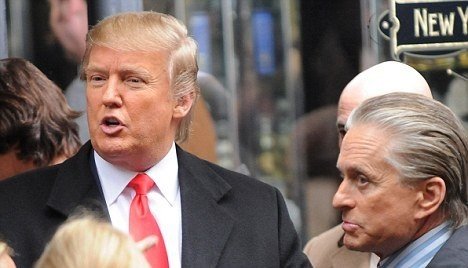From Trump to Gekko: Mastering the Art of the Deal in a Greedy World
Welcome to the wild, wacky, and sometimes wicked world of finance, where the suits are sharp, the stakes are sky-high, and the morals are... well, let's say they're optional. In this blog, we're diving headfirst into the pool of ambition with none other than the infamous Wall Street titan, Gordon Gekko played by the incomparable Michael Douglas who also took home the Academy Award for Best Actor in 1987 for the role.
Buckle up as we explore how to channel your inner Gekko, minus the insider trading scandals, of course! Whether you're here to learn how to "make money while you sleep" or just to enjoy some deliciously dramatic financial storytelling, you've come to the right place. Let’s get ready to dissect the art of deal-making, the seduction of power, and the importance of not getting too greedy with our popcorn. Here we go!
From Gordon Gekko in the movie ‘Wall Street’, we can gleam several lessons, though it's important to approach his character critically:
1. Greed and Ethics: Gekko's famous line, "Greed, for lack of a better word, is good," highlights how financial greed can drive innovation and economic growth. However, the film also serves as a cautionary tale about the ethical boundaries that can be crossed in pursuit of profit. It shows how unchecked greed can lead to corruption, manipulation, and personal downfall.
2. Charisma and Influence: Gekko demonstrates how charisma, confidence, and persuasive communication can wield significant influence over others, often leading them into risky or unethical decisions. This illustrates the power dynamics in business and finance, where personal magnetism can sometimes overshadow sound judgment.
3. Knowledge is Power: Gekko values insider information and uses it to his advantage, which underscores the importance of information in financial markets. However, the film also critiques the unethical pursuit of information, particularly through insider trading, which is illegal and harmful to market integrity.
4. The Pitfalls of Success: Gekko's life shows that financial success does not equate to personal happiness or moral righteousness. His isolation, family issues, and eventual legal consequences reflect the potential personal costs of prioritizing wealth above all else.
5. Mentorship and Manipulation: Gekko acts as a mentor to Bud Fox, initially appearing as a beacon of success. However, his mentorship is manipulative, teaching us to be wary of those who might use their position to exploit rather than genuinely guide.
6. Market Manipulation: The character exemplifies how individuals with significant influence can manipulate markets, which can lead to both individual and systemic risks. This teaches the importance of regulatory oversight in financial markets to prevent such manipulations.
The man loves golden escalators
7. The Importance of Due Diligence: Through the character of Bud Fox, viewers learn the hard way about the necessity of due diligence. Trusting Gekko without verifying information or understanding the full implications leads to Bud's downfall.
8. Legacy and Impact: At the end of the movie, Gekko's legacy is tarnished. This serves as a reminder about how one builds a legacy not just through wealth but through integrity and the impact on others' lives.
Imagine if Gordon Gekko, with his slick charm and cutthroat business tactics, penned a book like Donald Trump's "The Art of the Deal." In this hypothetical blend, Gekko would regale us with tales of leveraging everything from real estate to corporate takeovers, much like Trump's iconic anecdotes of negotiating his way through the concrete jungles of New York.
Both figures share a penchant for the dramatic flair in business, where every deal is not just a transaction but a performance. Gekko, like Trump, would extol the virtues of bold negotiation, branding himself as the ultimate deal-maker where the art lies not just in the numbers, but in the psychological warfare of making the other side think they've won, all while orchestrating the game behind the scenes.
They're both masters of the narrative, crafting their public personas as larger-than-life characters where every handshake could mean a fortune or a fall from grace, depending on how well you've read the room. In this saga of ambition, both Trump and Gekko would teach us that in the high stakes world of business, your reputation is your currency, and sometimes, the best deal is the one where you're the only one who knows you've won.
So there you have it, folks, a deep dive into the world where ambition meets morality, and sometimes, they don’t just meet—they clash. Gordon Gekko might have been the poster boy for '80s excess, but his lessons on power, manipulation, and the thin ice of ethical finance still resonate today. Whether you're inspired to chase your fortunes with a newfound sense of caution or simply entertained by the high drama of Wall Street, remember: in the game of finance, it's not just about playing your cards right, but also knowing when to fold them.
Thanks for joining us on this rollercoaster ride through greed, glory, and the fine print. Stay sharp, and until next time, may your deals be as thrilling as Gekko's, but your integrity, even sharper.





